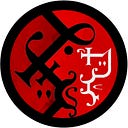Some Winter Festivals

HOLY INFERNAL EMPIRE
The only clear winter holiday I have is for the Holy Infernal Empire.
Winter is cold, and it is time to huddle up together around the fire. In the Empire there is attention to hierarchies, generally the earned one as in the best should be on top, so it seems natural that also a family holiday has this vibe, with the heads of the house being homaged as the “fire that keeps the family warm”.
In a nuclear family, this would be the father and the mother, and the idea is that the children (and the eventual single relative hanging around, like the bachelor brother, the old granny, etc. ) pay homage to their parents, and the parents in return award their children for their good behavior during the year. Something like “this candy is for who helped the most, and this is for the sweetest and most kind, and this is for the most diligent…”.
In a rural setting with a big extended family the “hearth of the house” could be just the oldest couple, even if they are not really the ones in charge, while the ones actually holding the reins of the house are probably too busy running the farm. In very big farms it also becomes a way for the hired workers to show gratitude to their employers and receive a tip.
This is also the occasion to “break in” potential new family members: it could be the occasion for someone to present their boyfriend/girlfriend to get the family’s approval. Or it may be a way for parents to push a good “candidate” to their son/daughter, a matchmaking exercise that can be binding as an “arranged engagement” (the boy and girl involved will have the last word, but if your mother invites the neighbor son at the winter celebration you kind of have to go out with him for some time before declaring he’s not the right one for you).
This aspect expanded widely in the aristocracy making the Winter Celebration a way for the nobles to play marriage politics: it is the occasion to show off their children and try to find good matches. Countess, Baroness, and Duchesses have to battle through letters and gifts to secure the best invites or the best guests.
A noble house that is high status enough can enter this arena of social warfare to meddle in other houses’ marriage alliances, even if they don’t have any heir in the fight. The Winter Balls of the Prince-electors are highly political matters where commercial treaties, land disputes, debt forgiving, and infrastructure projects are decided by a meaningful brooch, a foot stomped during a sarabande, or a coquettish laugh to a bad joke.
THE BEASTS’ NATIONS
The Beast Nations have some cultural elements in common with the Empire, but they care for more indirect and egalitarian relationships, and they also want to distinguish themselves from the devils’ scions.
So I figured they honor the “hearth of the house”, Mom and Dad, by letting them free of responsibility for a day. This means often giving the “spotlight” to the more grownup children, the unmarried relatives, or even neighbors, fostering bonds other than the parent-children dynamic. It’s a good occasion for a young couple to show their commitment, helping the family they would like to join.
For the less well-off, the day off would be probably just a trip to the nearest town, a stroll in the fair, a decent meal in a tavern, and then back home, where the children and relatives will have prepared some seasonal dishes. Often the Partens will come back with some treats like candies or small toys.
The Nobility and well-off people will take more time off, sleeping one or more nights out. Nobles often have pavilions in their proprieties dedicated to such retreats. A big city like Getaberan will have all its inns and theatres filled with husbands and wives from middle-class professions, like notaries, merchants, and artisans.
Even couples that are together for convenience rather than love will keep up appearances, often going separate ways to do their own business after the ritual leaving of home. Winter Festival is a great night for brothels, even women seek out some “paid companionship”, usually some “chivalrous servant” who will lavish them with attention.
The decorations are usually white and silver, with swans and white birds as doves and cranes as a recurring motif.
THE ANGELIC UNISON
In the Angelic Unison, egalitarian values and the idea that your community (and even the whole country) is your family means that the winter celebration should involve everyone. Every village or part of town or city district has a hall for meetings and there is held a big banquet where everyone is invited. From the local authority to the poorest soul, all eat at the same long tables rubbing elbows and swapping stories. The meal is offered by the Church and the menu is a point of pride for each diocese: the task is serving the largest number of people with the best quality food. Since the hall itself is inevitably crammed full of people, many street food vendors set shop around the site. In big cities the fair spreads to engulf all the nearby streets creating a temporary “winter city”.
Angelic people like to sing in general and the long queues to be served in the hall spawned a whole musical genre of “waiting songs”.
The theme of the decoration is of course light and fire. Since flowers are the usual decoration for festivals and in winter there are none, evergreen plants that have some colored accents are the choice: holly, winterberry, and poinsettia for example.
— -
Any idea for the orcs, the elves, or the tritons?









